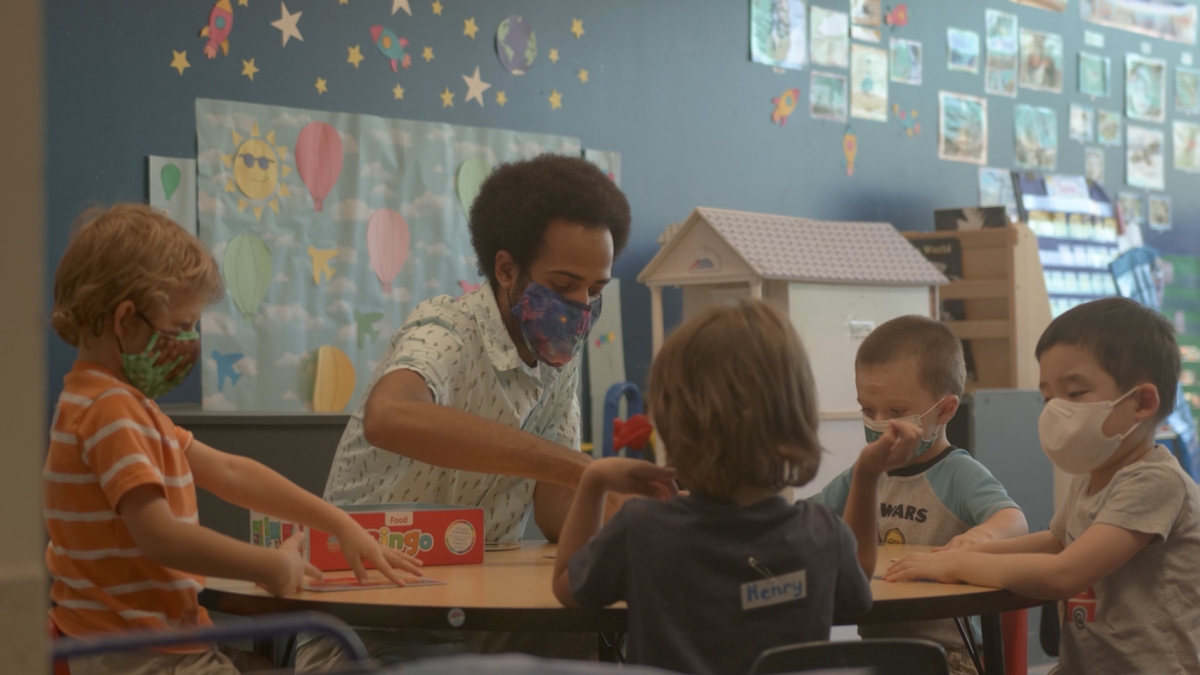ASU’s Child Study Lab returns with expanded instruction opportunities

This fall, the ASU Child Study Lab is opening its doors to children once again for in-person instruction and is expanding its virtual classroom.
This fall, the ASU Child Study Lab is opening its doors to children once again for in-person instruction and is expanding its virtual classroom. Established by Arizona State University's Department of Psychology in 1972, the Child Study Lab is a preschool where children and families explore, create, learn and grow using a curriculum built on the latest research in child development.
The curriculum at the lab focuses on cognitive, social-emotional, physical and language development for children age 15 months to pre-kindergarten. Children are encouraged to play and self-initiate learning to discover areas of improvement and interest.
After piloting a synchronous learning environment with limited-size in-person classes and online participants, the program is expanding capacity to a larger audience with hopes of being back to pre-COVID registration and classroom sizes.
“We were totally blown away by the suddenness of shutting down our program from COVID,” said Anne Kupfer, director of the Child Study Lab. “We took this unusual and unpleasant time from the pandemic and used it as a chance to innovate. We thought: Can we do this synchronous learning experience at the (Child Study Lab)?”
Children traditionally have been thought to be unable to maintain attention on a screen, but in this pilot run of the synchronous program, the teachers kept the children moving and learning, not just staring at a screen.
“We had them stand up if they agreed or disagreed,” said Kupfer. “Children learn through play — their bodies remember through the act of embodied cognition. We actually improved some children’s attention spans!”
A key area of development that the Child Study Lab focuses on is emotion regulation, or the ability to manage and respond to an emotional experience. Research has shown that a child’s ability to self-regulate emotion correlates with lifelong success academically and socially.
“It is so important that children between the ages of 2 and 5 experience a good curriculum of emotion regulation. It really shapes how they handle conflict and stress for the rest of their lives,” said Kupfer. “The (Child Study Lab) truly is a wonderful, magical place, where all the latest research in child development is implemented in the curriculum. We’ve always had a wonderful faculty in child development in the department.”
Another component that makes the lab different from most preschool environments is the inclusion of undergraduate research assistants as part of their child development lab requirements. This allows children to interact with the undergraduates and participate in research projects.
“The assessments and research projects are a wonderful way for the parents to get to know their children more. The parents are able to see the studies that the children participate in, and it allows the students to experience an important hands-on research component in an active setting,” said Kupfer.
Over the summer, the Child Study Lab had students participating from multiple different states and even different countries.
“We actually brought the in-person children into small academic groups and had the remote children appear on iPads with the group of children. The online children could participate just as if they were physically present in the classroom,” said Kupfer. "While we are so happy and excited to have more children back in the classroom, we are also equally excited about the possibilities of reaching children that we never thought we could reach before.”
To enroll your child in a virtual or in-person session, visit the Child Study Lab website.
Video courtesy of Robert Ewing
More Science and technology

4 ASU researchers named senior members of the National Academy of Inventors
The National Academy of Inventors recently named four Arizona State University researchers as senior members to the prestigious…

Transforming Arizona’s highways for a smoother drive
Imagine you’re driving down a smooth stretch of road. Your tires have firm traction. There are no potholes you need to swerve to…

The Sun Devil who revolutionized kitty litter
If you have a cat, there’s a good chance you’re benefiting from the work of an Arizona State University alumna. In honor of…

